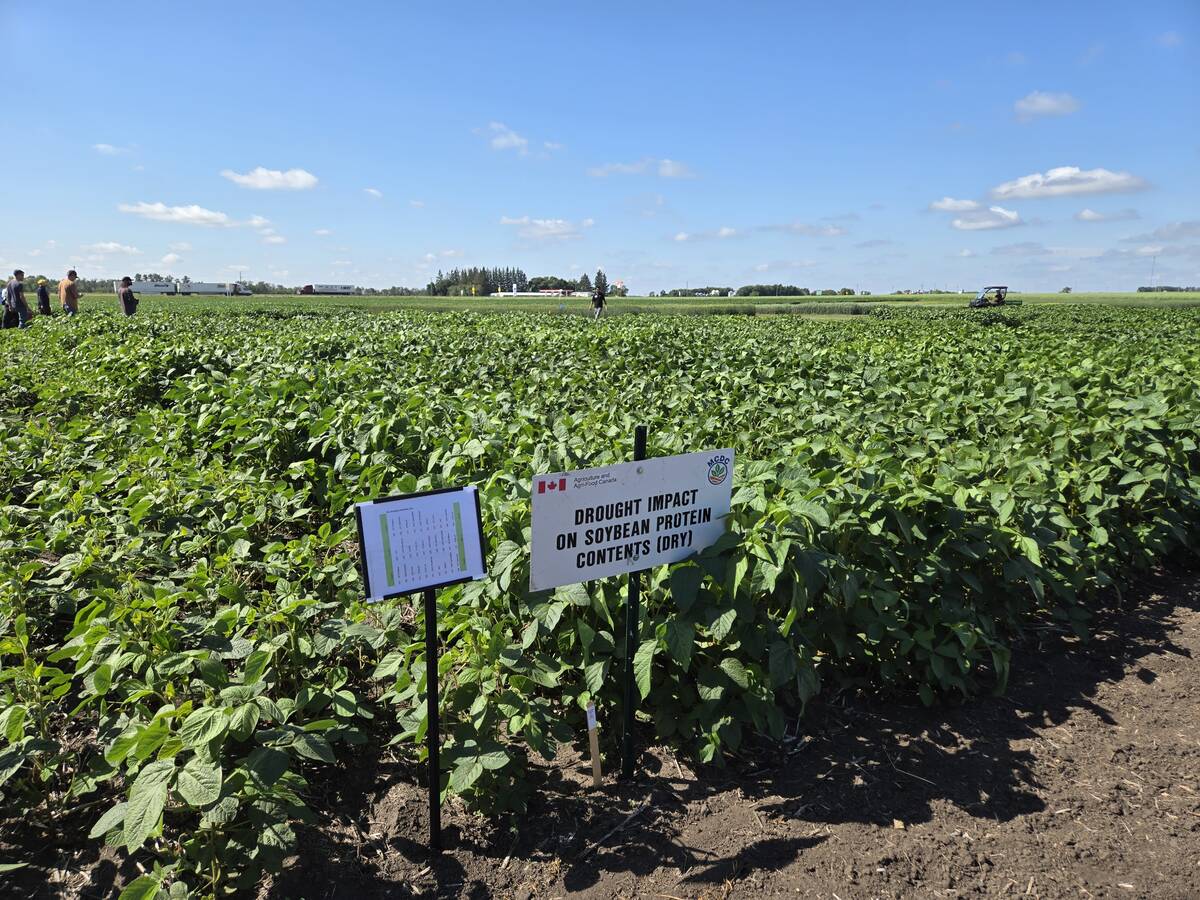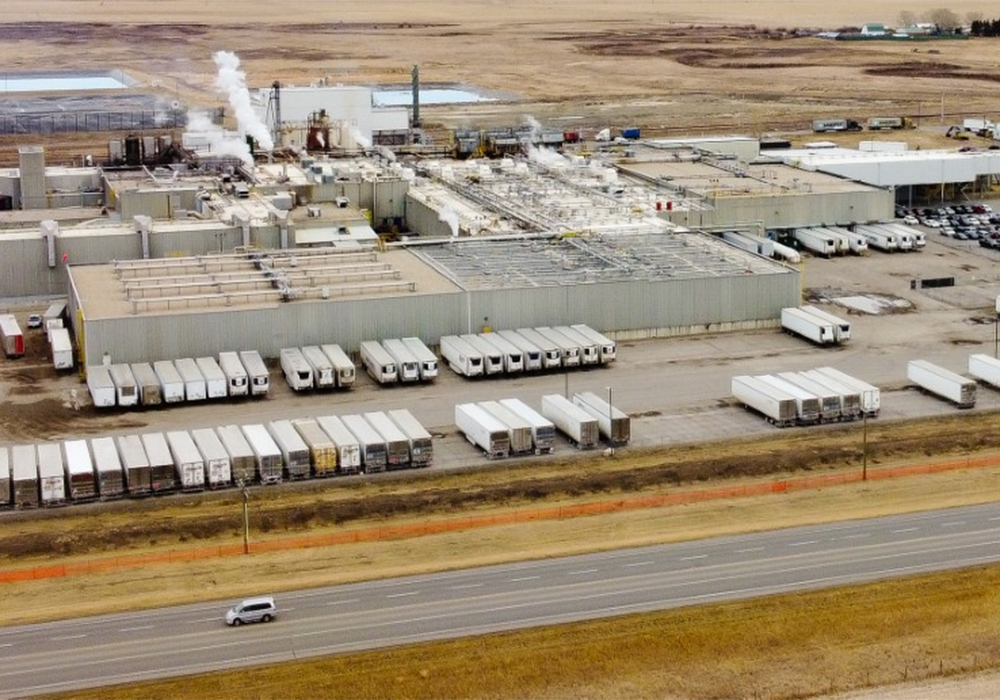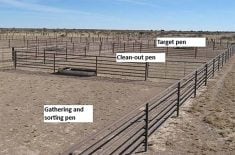(Updated 07:22 CST 2/12/2021)
Workers at a Cargill meatpacking plant in High River, Alta., that provides much of the beef in Canadian grocery stores are slated to vote on a tentative deal only days away from a strike or lockout deadline of Dec. 6.
“The company’s new offer is a dramatic improvement from the offer that union members saw last week and will significantly improve Cargill workers’ lives,” United Food and Commercial Workers Canada (UFCW) Union Local 401 said in a statement Dec. 1.
Read Also

Carberry field day looks for agriculture solutions
Manitoba farmers explored research solutions for resilient crops, perpetual agronomic issues and new kinds of agricultural products at a field day at the Manitoba Crop Diversification Centre in Carberry on Aug. 6.
“If ratified, the offer would be the best food processing contract in Canada, thanks entirely to the strength and determination of Cargill union members in seeking justice.”
Nearly 2,000 workers represented by the United Food and Commercial Workers Canada (UFCW) Union Local 401 are to vote on the tentative agreement from Dec. 2 to Dec. 4, said Cargill.
“We are encouraged by the outcome of yesterday’s meeting with the union bargaining committee representing our High River team,” the company said in an email Dec. 1.
“After a long day of collaborative discussion, we reached an agreement on an offer that the bargaining committee will recommend to its members. The offer is comprehensive and fair and includes retroactive pay, signing bonuses, a 21-percent wage increase over the life of the contract, and improved health benefits.”
Union president Thomas Hesse has called the contract dispute a “watershed moment” for the Canadian beef sector. As part of the union statement Dec. 1, he said “I’m happy to see that our bargaining committee finally feels that something fair has been proposed.”
However, he added “personally, I have mixed feelings about this. Our members may or may not accept the offer. If they don’t, I’ll join them on the picket lines in solidarity and on strike.
“If they do accept it, I’ll work with them every day to make Cargill a better workplace. I will do as our members ask me to do. I respect all of the emotions that they feel and the suffering that they have experienced.”
Hundreds of workers at the High River plant were infected and two died following an outbreak last year that was the largest in North America, forcing the facility to be closed for two weeks.
Alberta Agriculture Minister Nate Horner said Nov. 18 beef producers could be impacted if the workers decide to go on strike. The union served notice about the potential job action Nov. 10.
“I look at it like we’re Team Alberta — from the producer, to the processor, to our employees, our processing facilities, and then the consumer — so we’ll continue to monitor, but we’re hopeful they find an amicable, timely solution.”
After more than 1,400 workers voted 98 percent against a previous offer by Cargill on Nov. 23 and 24, the company served notice it would be locking out workers on Dec. 6 if a deal isn’t reached.
Cargill said Dec. 1 “we remain optimistic we can reach a deal before the strike deadline and encourage employees to vote on this offer, which recognizes the important role they play in Cargill’s work to nourish the world in a safe, responsible and sustainable way.
“While we navigate this negotiation, we continue to focus on fulfilling food manufacturer, retail and food service customer orders while keeping markets moving for farmers and ranchers.”
The union said the tentative deal includes the following provisions:
- Up to $4,200 in retroactive pay for many Cargill union members;
- $1,000 signing bonus;
- $1,000 COVID-19 bonus;
- More than $6,000 total bonus for many members three weeks before Christmas.
- $5 wage increase – 21 percent over the contract – for many employees “that is well above industry standards;”
- Improved health benefits, including psychology and massage therapy, for Cargill workers and their families;
- Significant contract provisions “to facilitate a new culture of health, safety, dignity, and respect in the workplace.”
An executive summary of a report by researchers at the Centre for Refugee Studies at York University and the Calgary-based community advocacy group ActionDignity said 70 percent of beef sold in Canada comes from Cargill’s plant in High River and JBS Foods’ facility in Brooks, Alta.
It added that 67 percent of workers in the province’s meat processing industry are immigrants who “bore the brunt of the outbreaks, infection and fatalities” from COVID-19.
Hesse has said many of the workers at the High River plant feel they are largely invisible to people in authority at both Cargill and the provincial government. The company ended its extra pandemic pay for workers last year, despite the fact the pandemic has continued and beef prices in grocery stores have soared, he added.
However, Cargill said in a statement Nov. 12 that “we greatly value our employees and the work they do to feed Canadians … we remain focused on employee safety, ensuring farmers and ranchers have access to markets, and providing meals for families across Canada.”
It added it had exchanged multiple comprehensive proposals with the union that “included increased wages well beyond the industry standard,” along with enhanced employee benefits and cash bonuses.
















